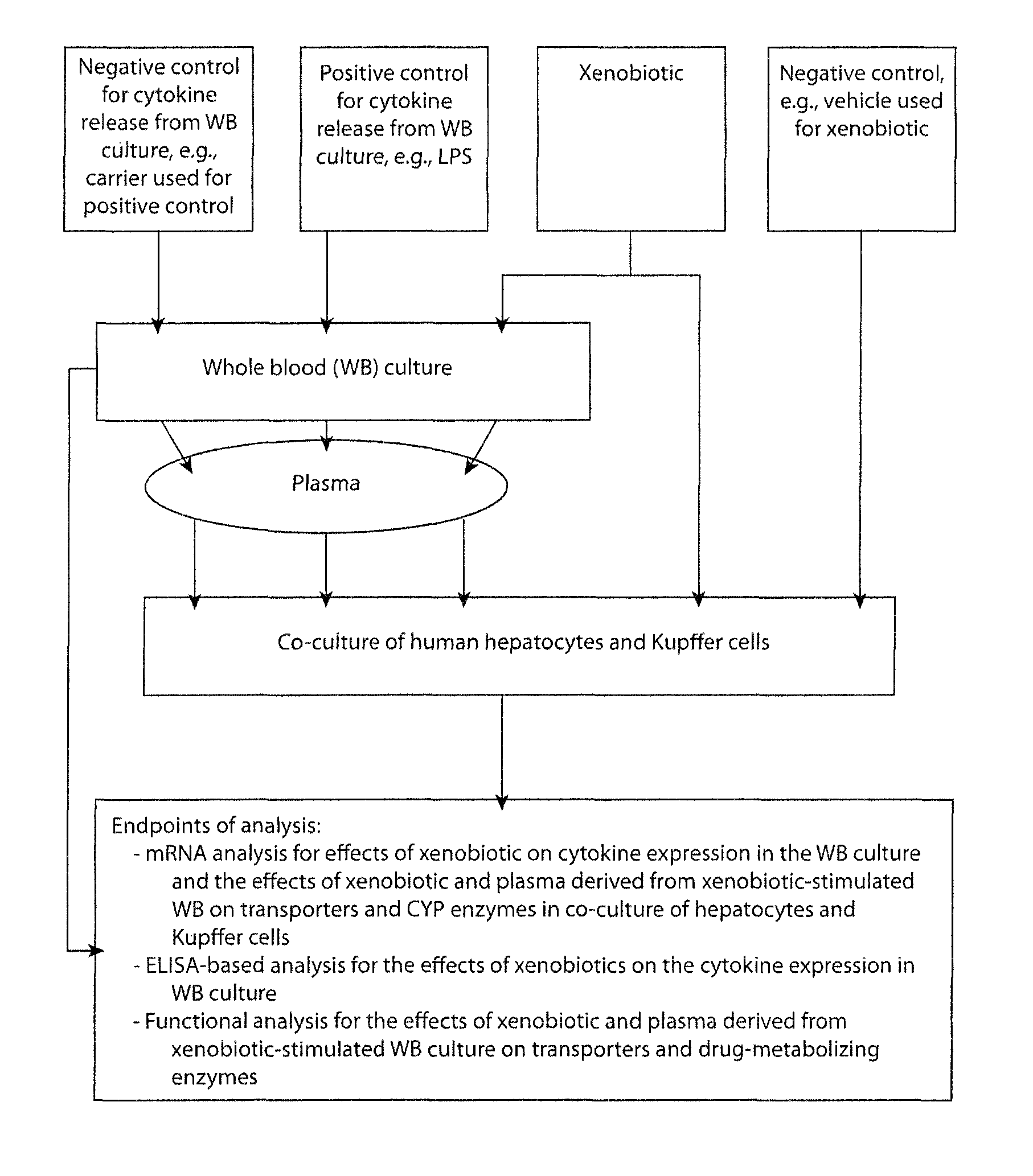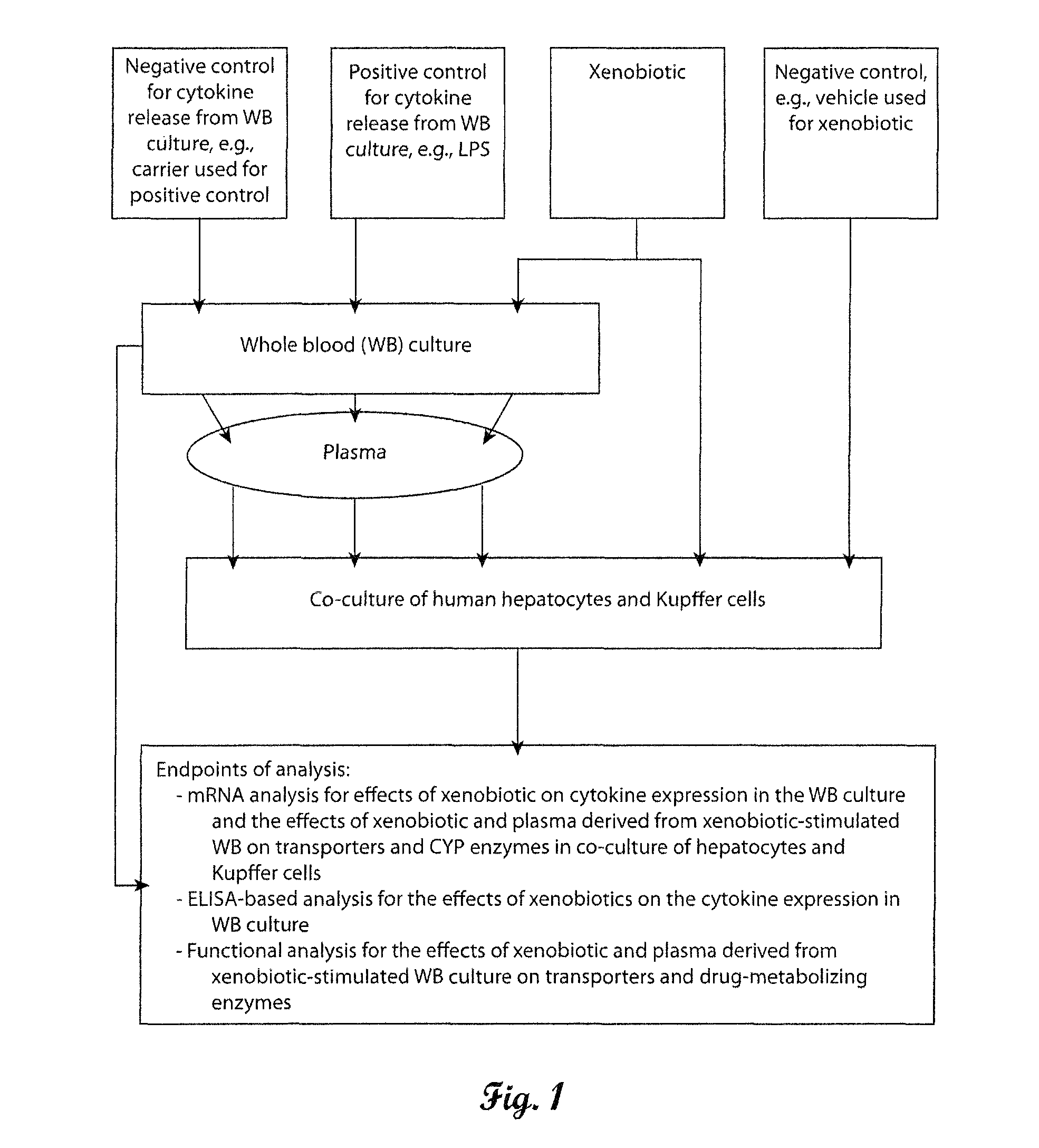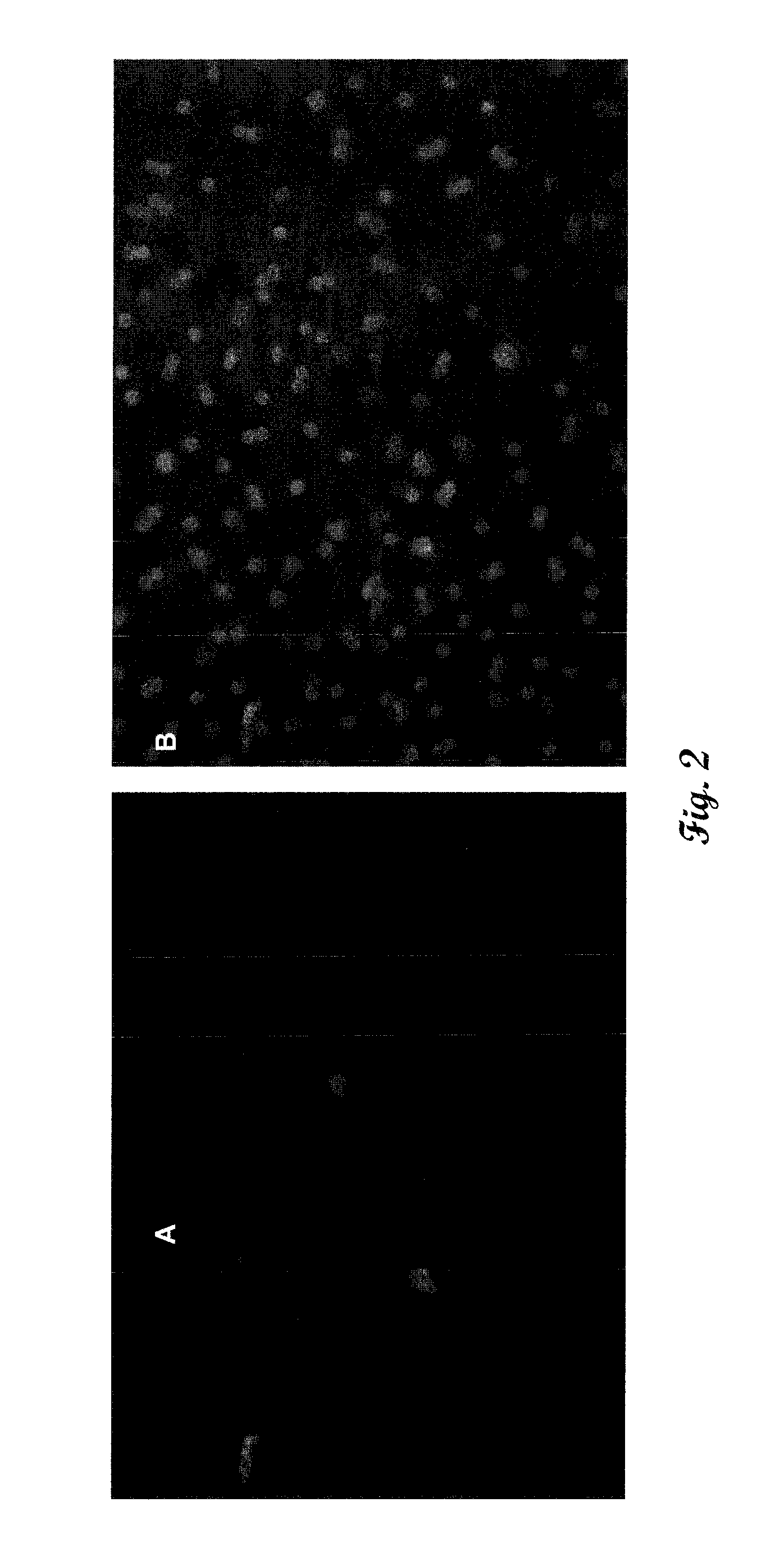In vitro test system to evaluate xenobiotics as immune-modulators of drug transport and metabolism in human hepatocytes
a technology of hepatocytes and xenobiotics, which is applied in the field of in vitro methods of evaluating xenobiotics and their effect on drug transport and metabolism, can solve the problems of small molecule drug toxicity following their administration, the toxicity of theophylline and warfarin, and the inability to fully absorb the flu vaccine,
- Summary
- Abstract
- Description
- Claims
- Application Information
AI Technical Summary
Problems solved by technology
Method used
Image
Examples
example 1
Analysis of Xenobiotic Effect on CYP Enzymes in Hepatocytes
[0044]Whole blood was collected from one healthy volunteer into vacutainers containing 15 USP sodium heparin / mL of blood. Blood cultures were stimulated ex vivo with lipopolysaccharides (LPS) 50 ng / mL in normal saline for 24 hrs at 37° C. Following the stimulation period, plasma was separated from the blood cells by centrifugation and stored at −80° C. Levels of cytokines IL-1B, IL-2, IL-6, IL-8, IL-10, IL-12p70, GM-CSF, INF-γ, TNF-α in the plasma from the LPS-stimulated whole blood were analyzed with the Sector Imager 24-00 and Pro-inflammatory 9-Plex kit manufactured by Meso Scale Discovery.
[0045]Co-cultures of primary human hepatocytes and Kupffer cells were prepared and stained with anti-CD68 mAb or a nuclear stain (4′,6-diamidino-2-phenylindole, DAPI). Images were taken using fluorescence microscopy are shown in FIG. 2. The ratio of macrophage to hepatocyte was approximately 1:50.
[0046]Three concentrations (10, 20, or 5...
example 2
Monoclonal Antibody Xenobiotic
[0051]In this Example, the same procedures used in Example 1 were followed, except that anti-CD28 antibody was used as the xenobiotic. LPS was also used as an additional positive control. The changes in pro-inflammatory cytokines observed upon treatment of whole blood with LPS or anti-CD28 antibody are illustrated in FIG. 7. Treatment of co-cultures of hepatocyte and Kupffer cells with plasma from anti-CD28 antibody-stimulated WB caused a decrease in CYP1A2, CYP2B6, and CYP3A4 activity (FIGS. 8-10). Treatment of co-cultures of hepatocyte and Kupffer cells with anti-CD28 antibody had little or no effect on CYP1A2 and CYP3A4, and CYP2B6 activity (FIGS. 8-10). The effects of IL-6,anti-CD28 antibody, and plasma from anti-CD28 antibody whole blood on enzymatic activities in hepatocytes were accompanied by expected corresponding changes in the levels of specific mRNAs. Taken together these results indicated that enzyme suppression rather than inhibition was t...
PUM
| Property | Measurement | Unit |
|---|---|---|
| temperature | aaaaa | aaaaa |
| concentrations | aaaaa | aaaaa |
| concentrations | aaaaa | aaaaa |
Abstract
Description
Claims
Application Information
 Login to View More
Login to View More - R&D
- Intellectual Property
- Life Sciences
- Materials
- Tech Scout
- Unparalleled Data Quality
- Higher Quality Content
- 60% Fewer Hallucinations
Browse by: Latest US Patents, China's latest patents, Technical Efficacy Thesaurus, Application Domain, Technology Topic, Popular Technical Reports.
© 2025 PatSnap. All rights reserved.Legal|Privacy policy|Modern Slavery Act Transparency Statement|Sitemap|About US| Contact US: help@patsnap.com



